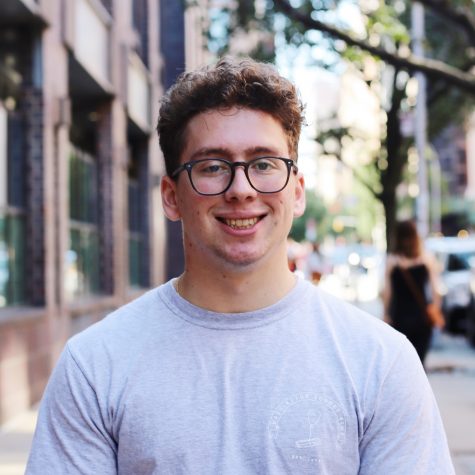Society Favors Extroverts
April 2, 2018
Entering the NYU Journalism Career Fair, I felt intimidated. I couldn’t help but breathe in the nervous energy of a hundred students polluting the air. As the sound of a hundred resumes emerged from their folders reached my ears, I thought of the resume I had pulled together that morning. As a first-year, my resume is not particularly strong, and I wondered why I even bothered coming. Yet I knew many of my peers sought internships for the summer, and thought if I failed to do the same, I would be setting myself back.
While waiting in line for an interview, I observed one student in action. His face held a smile the entire time as he joked with the interviewer like they were old friends. He was outgoing, talking loudly and passionately about his interests and expressing his willingness to work extremely hard. Honestly, I found this somewhat annoying. Perhaps because this made me examine my own shortcomings, it did not seem authentic to me. However, it seemed to be working for him, and I began to wonder why.
The answer appears to be that extroverts do better in interviews. Due to the nature of those one-on-one interactions, employers make judgments based on a first impression, and interviewers commonly favor people who can capitalize on this opportunity. Being outgoing and possessing the ability to quickly turn thoughts into responses are traits that are beneficial in this process. These are traits often found in extroverts. However, it is more than interviews that favor extroverts. Susan Cain, author of “Quiet: The Power of Introverts in a World That Can’t Stop Talking,” claims that our work and school environments favor extroverts as well.
Living in a society that favors certain traits and essentially molds people into displaying them is incredibly detrimental. Whether it be college admissions or job interviews, society seems to have ways of filtering out those who do not express their thoughts as vocally as others. In an interview, Cain mentioned that college admission officers prefer students who show leadership. These leadership roles are too often held by extroverts — another problem in and of itself. As someone who recently went through that process, I know firsthand that leadership is valued highly by admissions officers. Colleges often ask applicants to list leadership roles they have held; this is something students know before they apply. For introverts, this means they must adjust how they socialize to improve their college applications or resign themselves to being written off as less qualified.
That pressure doesn’t subside once students get into college. NYU, like most schools, fosters a sense of competitiveness — for internships, grades and more. The stain students suffer to achieve these things is justifiable, as they have an impact on our futures. For example, at the career fair I met an alumna struggling to find a job who cited her her difficulty getting an internship in college as the source of her problem. After hearing that, I felt the fear of returning to this fair in four years jobless overwhelm me, and the extrovert I had seen earlier seemed less like a nuisance and more like a role model.
Opinions expressed on the editorial pages are not necessarily those of WSN, and our publication of opinions is not an endorsement of them.
A version of this article appeared in the Monday, April 2 print edition. Email Victor Porcelli at [email protected].




























































































































































